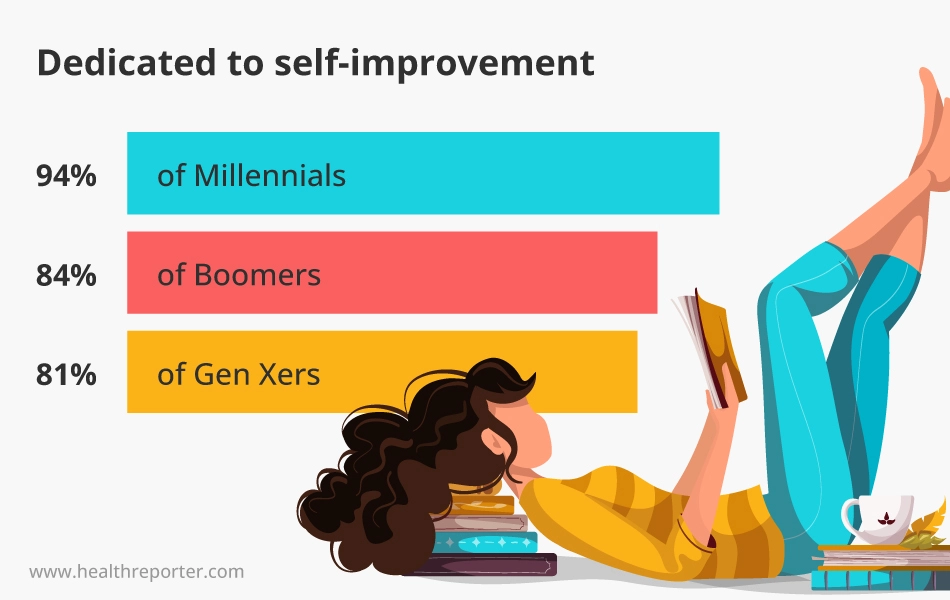What’s Wrong With Manifestation? A Scientific Investigation
Take a critical look at manifestation, a viral self-help technique. Learn about its effectiveness and potential pitfalls through relevant studies, sociological analysis, and expert medical opinion.

There is nothing we wouldn’t do to get what we want. Day by day, people come up with new strategies to achieve success as easily and efficiently as possible. Thanks to TikTok users, psychics, and astrologers, a manifestation technique has recently gained insane popularity. The idea is simple – visualize the result you want, and you’ll attract that energy.
Some people suggest just thinking about your wishes. Others suggest writing them down a certain number of times, using a magical TikTok sound, or performing rituals with candlelight and singing.
Thousands of people are sure it works. Hundreds of articles promote manifestation as the easiest and most effective way to achieve goals and fulfill dreams. This topic rarely receives skeptical or critical articles, making it a one-sided debate.
But did you know that scientists, researchers, and doctors actually have opinions on the subject? We searched the internet and found scientifically proven answers to our skeptical hypotheses. Also, we assumed that manifestation may:
- Rely on baseless evidence
- Simplify the strategies for achieving goals
- Promote unrealistic positivity
- Get people into risky financial situations
- Be used by influencers to promote products and make sales
- Have a negative impact on mental health
Did we prove or disprove these suggestions? Taking a broader, more complex view of manifestation, let’s examine the research we found.
A Short Dive Into Manifestation’s History
Manifesting is a modern way of believing that thoughts have power and that properly expressing your intentions can lead to them becoming a reality.
It’s unclear where the term “manifesting” came from, but the concept has been around forever. Since ancient times, magical thinking has existed in various forms, such as manifestation or the “law of attraction.”
It’s believed that esoteric philosopher Helena Blavatsky first introduced the term “law of attraction” in her book “Isis Unveiled.” As a result of the American New Thought movement, this concept gained popularity and eventually evolved into the New Age movement, which combines religion, esotericism, and magical practices.

Manifestation of desires is the same, just in a different package. Nowadays, these people don’t publish books but record short videos and do “wish marathons.”


“When manifesting, your behavior can turn into mania. You may feel that you must make every wish correctly, “paint 50 goals in the present tense,” perform all the rituals and visualize them perfectly. It can be scary to think that one wrong move could prevent your desires from coming true. Additionally, you may begin to look for confirmation in reality that the manifestation is “working” and try to interpret events or coincidences as being related to the power of your thoughts.”
And it has gone far beyond entertainment. Manifestation is part of an entire industry that is no longer being studied by TikTok users but by sociologists.
Manifestation and Society: The Concept of Self-Help Industry
Researchers from York and McMaster Universities analyzed manifesting as part of the self-help industry.1 Self-help is a wide-ranging concept that includes books, courses, workshops, apps, gurus, techniques, self-help groups, and even ancient philosophies.
The self-help industry promotes neoliberal values for dealing with mental health problems. Neoliberalism emphasizes individualism, personal responsibility, and competition.
According to scientists, the self-help industry began to expand in the 1990s, with the increasing prevalence of neoliberalism in society. Since then, psychological conditions have been transformed into moral duties.
And despite doubts about its effectiveness, the self-help industry keeps growing. Based on a 2016 Forbes report, 94% of millennials are dedicated to self-improvement versus 84% and 81% of boomers and Gen Xers.2

According to sociologists, the self-help industry prioritizes profit over responsible research. It often lacks professional expertise and relies heavily on anecdotal evidence and personal narratives.
That’s how manifestation has gained popularity on social media, where influencers use it to sell products. The efficacy of these products is frequently overshadowed by branding and marketing.
Even pseudoscience can be successful if packaged with a compelling empowerment narrative.
Ironically, many self-help gurus lack the credentials to offer advice on being confident and successful. This is especially true of manifestation, where the line between the power of desire, constant effort, and coincidence can be blurry.
Examining Scientific Research and Evidence
While many experts believe that manifestation cannot be studied, science has answers for everything (and we’re glad researchers are keeping up with current trends).
Scientists at the University of Queensland decided to delve deeper into the manifestation phenomenon.3 They created an 11-question “Manifestation Scale” with two reliable parts:
- Personal Power – using positive self-talk, visualization, and acting as if desires have already been achieved.
- Cosmic Collaboration – partnering with supernatural or cosmic higher forces.
The results from the scale showed that more than one-third of participants had some level of manifestation belief, indicating that this technique is really popular.
Scientists discovered that individuals who believe in manifestation tend to:
- Have a positive self-image
- Perceive themselves as more successful
- Have a hopeful outlook for future success
Yet, there is no evidence that these individuals achieve greater success in terms of income or education, which are often considered objective measures of success.
Financial risks
While belief in manifestation can boost self-confidence, it does not necessarily translate into actual success. Studies suggest that those who believe in manifestation are more likely to:
- Have experienced bankruptcy
- Take financial risks
- Invest in risky assets such as cryptocurrencies
Manifesters tend to have a positive outlook on failure, which makes it challenging to understand the actual reasons behind it. They might think they are still working toward a complete vibrational alignment or that God has other plans for them.
Overconfidence
Changing how you think about something can help you deal with your emotions, but it could also make you overly optimistic or in denial about a situation.
The study also found that manifesters are more likely than non-manifesters to believe they can achieve improbable levels of success (e.g., earn $1,000,000 a year or get 300,000 followers) in a shorter period of time. Overconfidence makes manifesters vulnerable to get-rich-quick schemes and unrealistic claims from the success industry.
Rational explanations of probability may not sway manifestation believers (they trust emotional success stories). And they may also neglect the likelihood of failure and only focus on successful outcomes.
Believing in something without much evidence is often seen as admirable in many religious or spiritual beliefs. Yet, you should always consider actual facts and evidence. For example, if someone believes manifestation can cure cancer, they might delay seeking medical treatment in favor of visualizing a cure.
Manifestation and Mental Health: Expert Opinion
There’s nothing wrong with believing things will always work out for you. It has, however, potential drawbacks that are not widely discussed online.
To fully understand manifestation and its impact on mental health, we talked to medical professionals.
Toxic positivity
“Manifestation is a trendy topic these days. The internet is full of stories and podcasts on how manifestation works and can land you a dream job or turn you into the person you have always wanted to become.
However, people don’t realize that manifestation will only make it worse for someone already suffering from anxiety, mood disorders, or other mental health issues. This is because manifestation doesn’t occur due to desperation and fear. It is a slow process that involves being positive and fearless.
Also, manifestation always requires what we call toxic positivity. This means trying to be positive by suppressing your negative emotions. So you should remember that it is normal to sometimes feel destructive emotions,” says Danny Dorsey, founder, and CEO of Everlast Recovery Centers.
Victim blaming


“The concept of manifestation may be a vehicle for victim blaming. For example, blaming bad things on the people who experience failures happening to them. You may judge yourself for focusing your intention on the wrong things or manifesting those situations.”
Curren Trusty adds that this can be particularly problematic when the situation is out of the person’s control, but they feel guilty. Taken to this extreme, manifestation affects mental health.
A far or near boundary?
“We can think of manifestation as near and far boundaries. That’s about how it feels to you.
For example, it feels like a near boundary when it’s close to your heart and natural for you. A far boundary is what it feels like when something is wrong, doesn’t make sense, or hurts you.
The good side of manifesting is when you look around your life and start to orient around the things that work well. Given your circumstances, you are seeing the hard parts as strengths and figuring out how to have a good life.
The bad side of manifesting looks like blindness and pretending that everything is okay when it isn’t. You spend a lot of energy trying to feel okay in situations that are not okay. You end up hurting yourself and feeling numb”, claims Asha Teeple, a licensed therapist.
The Bottom Line
Recent studies have confirmed these hypotheses. Often touted as a life-changing practice, manifestation is pseudoscientific in its reliance on false data and superficial knowledge. As such, it is part of a vast TikTok ecosystem that promotes oversimplified concepts like freedom, authenticity, mindfulness, and resilience as self-help techniques.
The dangers of manifestation also include promoting unrealistic positivity and financial risk. Medical experts warn that manifestation can exacerbate mental health disorders and lead to self-blame. You may also become too dependent on manifestation and ignore the importance of taking concrete action.
Overall, manifestation has many benefits and can help you achieve your goals. But don’t forget to be aware and cautious. To smooth your way to success, acknowledge potential challenges and pitfalls.
Sources
- Patric Plesa, Rotem Petranker,Manifest your desires:
Psychedelics and the self-help industry, International Journal of Drug Policy, Volume 105, 2022, 103704,ISSN 0955-3959, https://doi.org/10.1016/j.drugpo.2022.103704 - Forbes, “Millennials, Here’s Why You Are Addicted To Self-Improvement”, 2018: https://www.forbes.com/sites/julesschroeder/2018/01/30/millennials-heres-why-you-are-addicted-to-self-improvement/?sh=b367e3130080
- Lucas Jon Dixon, Matthew Hornsey, and Nicole Hartley: “‘The Secret’ to Success? The Psychology of Belief in Manifestation”
https://www.researchgate.net/publication/364276896_%27The_Secret%27_to_Success_The_Psychology_of_Belief_in_Manifestation

















































 Select your language:
Select your language: 








